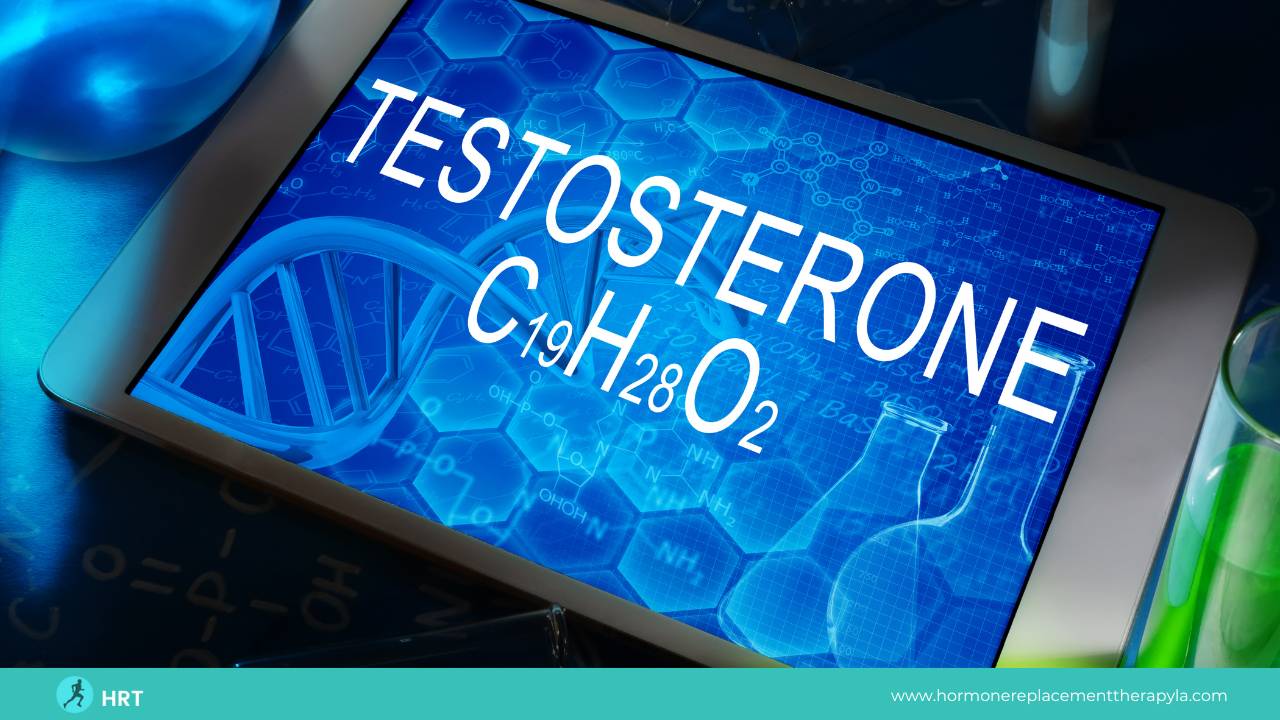Are you noticing shifts in your mood, energy levels, or sleep patterns? Do nagging symptoms like hot flashes, brain fog, or changes in your menstrual cycle leave you feeling frustrated and wondering if there’s a solution?
These changes could be signs your body is navigating hormonal fluctuations.
Hormone replacement therapy (HRT) has been a game-changer for many, helping them regain balance and well-being. If you’re feeling unsure about whether HRT is the right choice for you, understanding the common signs and symptoms that indicate a potential hormonal imbalance is your first step toward finding answers and personalized solutions.
This guide aims to provide clarity. Let’s explore the tell-tale signs that it might be time to discuss hormone replacement therapy with your doctor.
Understanding Hormonal Fluctuations
Hormonal imbalance is a common concern, affecting millions at various stages of life. It occurs when too much or too little hormone is in the bloodstream.
Because hormones play essential roles in managing nearly every major body system, even small hormonal imbalances can cause significant effects on your overall health.
And this is the time when you may need hormone replacement therapy.
Signs That You Need Hormone Replacement Therapy
Recognizing the signs that you might need hormone replacement therapy can be a crucial step toward improving your quality of life. Both men and women can experience distinct symptoms that suggest hormonal imbalances, which HRT could address.
Understanding these signs can guide you to seek professional advice and relief through tailored treatment.
For Women: Recognizing Menopause and Perimenopause
Hot Flashes and Night Sweats
One of the most common and immediate signs that a woman might benefit from HRT is experiencing hot flashes and night sweats. These intense heat episodes can disrupt daily activities and sleep, significantly impacting life quality.
Mood Swings
Hormonal fluctuations during menopause and perimenopause can also lead to noticeable changes in mood. Women might find themselves feeling unusually irritable or experiencing mood swings that seem disproportionate to their usual responses to stress.
Vaginal Dryness
Another significant indicator is vaginal dryness, which can cause discomfort, itching, and pain during intercourse. This symptom not only affects physical health but can also strain intimate relationships.
Decreased Bone Density
Over time, lowered hormone levels can decrease bone density, making women more susceptible to fractures. If you’re noticing an increase in bone fragility or changes in posture, consider HRT.
For Men: Understanding Testosterone Deficiency or Andropause
Low Libido
A decline in sexual desire can often be a red flag for men that their testosterone levels may be lower than normal. This change can affect personal relationships and overall life satisfaction.
Fatigue
Persistent fatigue, regardless of how much rest you get, is another common symptom of hormonal imbalance in men. This tiredness can hinder daily functioning and is not typically relieved by sleep alone.
Loss of Muscle Mass
Testosterone plays a vital role in building and maintaining muscle mass. A noticeable decrease in muscle strength and size could indicate testosterone deficiency.
Emotional Changes
Men may also experience significant emotional changes with lower testosterone levels, including sadness, depression, or a reduced ability to focus.
Difficulty Concentrating
This can manifest as “brain fog,” making it hard to remember details or focus on tasks. This can be frustrating and can impact professional performance.
General Signs for All Genders
Sleep Disturbances
Issues such as insomnia or disturbed sleep can often indicate hormonal imbalances and may warrant a discussion about HRT.
Persistent Fatigue Unrelated to Activity
This could point to an underlying hormonal issue if you consistently feel drained, regardless of your activity level or how much you rest.
Unexplained Weight Changes
Sudden weight gain or difficulty losing weight, despite no changes in diet or exercise habits, can often be linked to hormonal shifts.
Hair Loss or Thinning
Both men and women may notice that their hair is thinning or falling out, which can be distressing and is frequently associated with hormonal changes.
Benefits and Risks of Hormone Replacement Therapy (HRT)
Hormone Replacement Therapy (HRT) can be a significant decision that profoundly impacts health and well-being. While it offers notable benefits, particularly for menopause-related symptoms, it also carries certain risks.
Understanding both aspects can help you make an informed decision in consultation with your healthcare provider.
Health Benefits of Hormone Replacement Therapy
Improved Quality of Life
Many individuals who undergo HRT report an improved quality of life. This improvement is often due to alleviating symptoms that interfere with daily activities, such as extreme fatigue, mood swings, and other hormone-related disturbances. Regaining a more stable hormonal balance can help enhance overall well-being and life satisfaction.
Better Control of Menopause Symptoms
One of the most valued benefits of HRT for women is the control it offers over menopause symptoms. Hot flashes, night sweats, and other related symptoms can be dramatically reduced, a significant relief for many. This control can lead to better sleep, more consistent energy levels throughout the day, and a more comfortable and stable overall feeling.
Increased Bone Density
Estrogen plays a crucial role in maintaining bone density. As estrogen levels drop during menopause, women are at an increased risk of osteoporosis and related bone fractures. HRT can help maintain bone density, reduce the risk of osteoporosis, and promote stronger bones.
Risks and Controversies of Hormone Replacement Therapy
Increased Risk of Certain Types of Cancer
One of the significant concerns with HRT, particularly estrogen therapy, is the increased risk of certain types of cancer, including breast and ovarian cancer. The risk varies depending on various factors, including the type of hormone used, the duration of therapy, and individual health history. This risk is critical and should be discussed with a healthcare provider.
Blood Clots
Hormone replacement therapy, especially therapies that include estrogen, can increase the risk of developing blood clots. These clots can be extremely dangerous if they travel to the lungs or brain, leading to potentially life-threatening conditions such as pulmonary embolism or stroke. The risk of clots is a significant factor to consider and discuss when evaluating the suitability of HRT.
Heart Disease
The relationship between HRT and heart disease is complex. While some studies suggest that HRT can help reduce the risk of heart disease when started early in the postmenopausal period, others indicate an increased risk, especially if started later. This effect might depend on the individual’s existing risk factors and the timing of therapy initiation.
Making an Informed Decision
After carefully evaluating the potential benefits and risks, the decision to start HRT should be made.
Discussing your specific symptoms, health history, and concerns with a healthcare provider can help determine whether HRT suits you. Once started, it’s also important to regularly review your HRT regimen to ensure it continues to be the best option as your needs and health status evolve.
Alternatives to Hormone Replacement Therapy

While Hormone Replacement Therapy (HRT) is an effective solution for many dealing with hormonal imbalances, it’s not suitable for everyone.
Concerns about the risks associated with HRT or personal health conditions may lead some to seek alternative treatments. Fortunately, there are various non-hormonal therapies and lifestyle adjustments that can help alleviate symptoms associated with hormonal changes.
Dietary Adjustments
What you eat plays a crucial role in managing hormonal health. A balanced diet rich in fruits, vegetables, whole grains, and lean proteins can support overall health and help regulate hormone levels.
Incorporating foods high in phytoestrogens, such as soy products, flax seeds, and sesame seeds, may provide natural estrogen-like benefits, particularly helpful for women experiencing menopausal symptoms.
Maintaining a moderate carbohydrate intake and reducing sugar and processed foods can help stabilize insulin levels and support hormonal balance.
Regular Exercise
Physical activity is another powerful tool in managing hormonal health. Regular exercise helps maintain a healthy weight and can reduce the severity of hot flashes, improve mood, and bolster overall energy levels.
Weight-bearing exercises like walking, running, or strength training are particularly beneficial for bone health. They help prevent osteoporosis, which can be a concern during menopause.
Aim for at least 150 minutes of moderate aerobic or 75 minutes of vigorous activity each week, supplemented by muscle-strengthening exercises two or more days a week.
Stress Management Techniques
Stress can exacerbate hormonal fluctuations, which in turn affects overall hormonal balance. Effective stress management is crucial in alleviating hormonal symptoms.
Techniques such as yoga, meditation, and deep breathing can reduce stress and improve mental health. Regular practice of these techniques can lead to better sleep, reduced anxiety, and a more balanced mood—all beneficial for those managing symptoms of hormonal changes.
Herbal Supplements
Many turn to herbal supplements as a natural approach to managing hormonal symptoms. Some popular options include:
- Black Cohosh: Often used to reduce symptoms of menopause, including hot flashes and night sweats.
- Red Clover: Contains isoflavones that can act like estrogen in the body, potentially easing menopause symptoms.
- St. John’s Wort: Commonly used for mood management, this herb can be particularly effective in dealing with the emotional swings associated with hormonal imbalance.
- Chasteberry: Known to help with premenstrual syndrome (PMS) symptoms and menstrual irregularities.
Before starting any herbal supplements, it’s essential to consult with a healthcare provider, as some herbs can interact with medications or have side effects.
How to Proceed if You Think You Need Hormone Replacement Therapy (HRT)
If you’re experiencing symptoms that might indicate a hormonal imbalance and are considering Hormone Replacement Therapy (HRT) as a potential solution, it’s essential to approach this decision with thoroughness and care.
Here’s a guide to help you navigate the process from initial consideration to possible treatment.
Consulting with a Healthcare Provider
The first and most crucial step is to consult with a healthcare provider. This could be your primary care physician or a nurse practitioner who can provide an initial evaluation of your symptoms and overall health.
It’s important to have a trusted medical professional like Dr. David Nazarian who can guide you through the initial stages of diagnosis and treatment options.
Discussing Symptoms and Medical History
During your consultation, be prepared to discuss your symptoms in detail. This discussion should include the symptoms and their frequency, duration, and impact on your daily life.
Additionally, your medical history, including any past health conditions, current medications, and your family’s health history, will be relevant. This information will help your provider understand the context of your symptoms and consider any potential underlying causes.
Getting a Proper Diagnosis
Your healthcare provider may recommend a series of diagnostic tests to accurately diagnose a hormonal imbalance.
Depending on your symptoms and health history, these could include blood tests to check hormone levels and other assessments like thyroid function tests or lipid profiles.
These diagnostics are crucial as they provide concrete data on which hormones are out of balance and help guide the development of an effective treatment plan.
Discussing Options with a Specialist
Depending on the outcome of your initial consultations and tests, your primary healthcare provider may refer you to a specialist. This could be an endocrinologist, who specializes in hormone-related disorders, or a gynecologist, who specializes in female reproductive health if your symptoms are related to menopause or menstrual irregularities.
Specialists like these can offer more detailed insight into HRT and other treatment options that suit your situation.
Weighing the Risks and Benefits
Before making any decisions, it’s vital to understand both the potential benefits and risks associated with HRT. Discuss these aspects in detail with the specialist, considering your health risks, lifestyle, and the severity of your symptoms.
This discussion should also cover alternative treatments that might be suitable if you decide that HRT isn’t the right option.
Making an Informed Decision
Ultimately, the decision to start HRT should be made based on a comprehensive understanding of your personal health situation, the professional advice of your healthcare providers, and your preferences and concerns.
If you choose to proceed with HRT, your specialist will guide you through the process of starting treatment, including choosing the appropriate type of therapy and monitoring your progress through regular follow-ups.
Final Words
Feel free to talk to your doctor if you identify with several signs discussed. Hormonal imbalances can affect every aspect of your life, but they don’t have to define it. Open and honest communication with your healthcare provider is the key to finding the right solutions for your needs.
Remember, you are not alone in this journey. Many women and men experience similar challenges as their hormones shift. A qualified doctor will offer compassionate guidance personalized assessments, and discuss the potential benefits and risks of hormone replacement therapy tailored specifically to you.
Seeking answers and exploring options, including hormone replacement therapy, is a powerful act of self-care. By taking proactive steps, you prioritize your well-being and empower yourself to reclaim a sense of balance and vitality.





